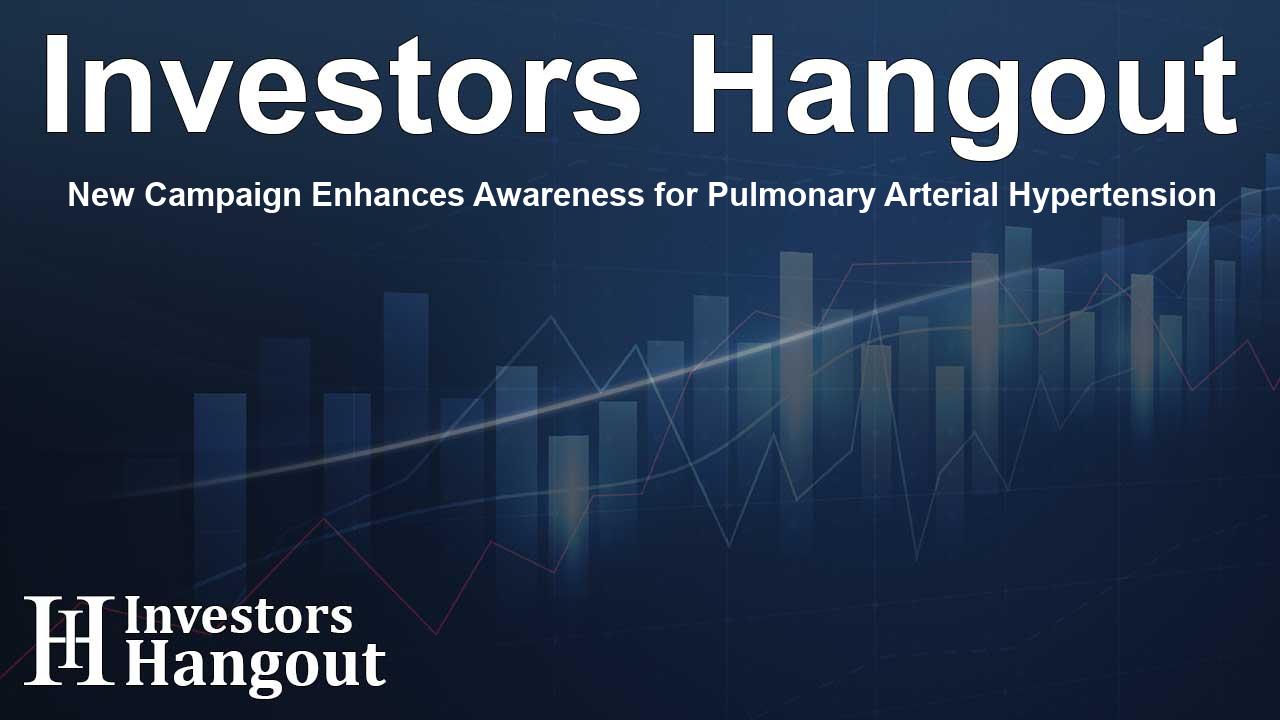New Campaign Enhances Awareness for Pulmonary Arterial Hypertension

New Campaign for Pulmonary Arterial Hypertension Awareness
The American Lung Association is initiating a new campaign to enhance the lives of those living with pulmonary arterial hypertension.
Each year, thousands of individuals in the U.S. are informed they have pulmonary arterial hypertension (PAH), a serious condition that often goes unnoticed until it reaches advanced stages. To tackle this challenge, the American Lung Association has launched an educational initiative with the generous support of Merck, aiming to raise awareness and provide crucial resources for patients and caregivers alike.
Understanding Pulmonary Arterial Hypertension
Pulmonary arterial hypertension is a specific type of pulmonary hypertension characterized by elevated blood pressure in the lungs, which results from blockages in the small arteries. This progressive ailment can significantly worsen over time, and often the root cause remains a mystery. Interestingly, 15-20% of PAH cases are genetic, highlighting the importance of awareness in detection and treatment. The disease predominantly affects women between the ages of 30 and 60, with a notable impact on Black and Hispanic women.
Challenges of Diagnosis
One of the significant hurdles in managing PAH is the elusive nature of its early symptoms. In its initial stages, PAH may not exhibit any noticeable signs, leading to its late discovery. As the condition progresses, patients may experience symptoms like increasing shortness of breath, fatigue, swelling in their extremities, lightheadedness, chest pain, irregular heartbeats, and bluish discoloration of the lips and fingers. Unfortunately, these symptoms can easily be mistaken for other common illnesses such as asthma or heart failure, resulting in misdiagnoses. On average, individuals may wait over two years before they finally receive an accurate PAH diagnosis.
Effective Management and Living with PAH
Currently, there is no definitive cure for pulmonary arterial hypertension; however, appropriate treatment strategies can significantly slow down the disease's progression and enhance patients' quality of life. It is crucial for individuals diagnosed with PAH to consult accredited pulmonary hypertension centers or specialists to ensure they are receiving the most effective treatments. These treatments often include medications aimed at restoring the balance of various substances in the lungs crucial for managing PAH, along with supplemental oxygen therapy, pulmonary rehabilitation, or even lung transplants in more severe cases.
Goals of the Awareness Campaign
The PAH Awareness Campaign, spearheaded by the American Lung Association in partnership with Merck, aims to heighten awareness regarding the symptoms of this illness. The hope is that by equipping at-risk individuals with knowledge, they will be able to obtain prompt and precise diagnoses. Furthermore, the campaign seeks to educate patients and caregivers about potential treatment options and strategies to manage their symptoms effectively.
Learn More About PAH
The American Lung Association is committed to raising awareness and improving the lives of individuals impacted by pulmonary arterial hypertension. For additional information about PAH and the ongoing awareness campaign, visit the American Lung Association’s dedicated page on lung health.
About the American Lung Association
The American Lung Association is the principal organization dedicated to saving lives by enhancing lung health and combatting lung disease through education, research, and advocacy. Its mission focuses on several key areas, including defeating lung cancer, promoting clean air, improving the quality of life for those suffering from lung diseases, and fostering a tobacco-free environment. For more details about the American Lung Association, which holds a prestigious 4-star rating from Charity Navigator and is recognized as a Platinum-Level GuideStar Member, individuals can reach them at 1-800-LUNGUSA (1-800-586-4872) or visit their official website.
Frequently Asked Questions
What is pulmonary arterial hypertension?
Pulmonary arterial hypertension (PAH) is a type of high blood pressure that occurs in the lungs' arteries, leading to serious health issues if untreated.
How can I recognize the symptoms of PAH?
Common symptoms include shortness of breath, fatigue, dizziness, chest pain, and swelling in the legs or feet, which can often mimic other health conditions.
What treatments are available for PAH?
While there is no cure for PAH, treatments can include medications, supplemental oxygen therapy, rehabilitation programs, and potentially lung transplants.
Why is early diagnosis important for PAH?
Early detection of PAH is critical as it can help prevent severe complications and improve the management of the disease, significantly enhancing quality of life.
How can I support the American Lung Association?
You can contribute by donating, participating in local events, or spreading awareness about lung health and PAH.
About Investors Hangout
Investors Hangout is a leading online stock forum for financial discussion and learning, offering a wide range of free tools and resources. It draws in traders of all levels, who exchange market knowledge, investigate trading tactics, and keep an eye on industry developments in real time. Featuring financial articles, stock message boards, quotes, charts, company profiles, and live news updates. Through cooperative learning and a wealth of informational resources, it helps users from novices creating their first portfolios to experts honing their techniques. Join Investors Hangout today: https://investorshangout.com/
Disclaimer: The content of this article is solely for general informational purposes only; it does not represent legal, financial, or investment advice. Investors Hangout does not offer financial advice; the author is not a licensed financial advisor. Consult a qualified advisor before making any financial or investment decisions based on this article. The author's interpretation of publicly available data shapes the opinions presented here; as a result, they should not be taken as advice to purchase, sell, or hold any securities mentioned or any other investments. The author does not guarantee the accuracy, completeness, or timeliness of any material, providing it "as is." Information and market conditions may change; past performance is not indicative of future outcomes. If any of the material offered here is inaccurate, please contact us for corrections.